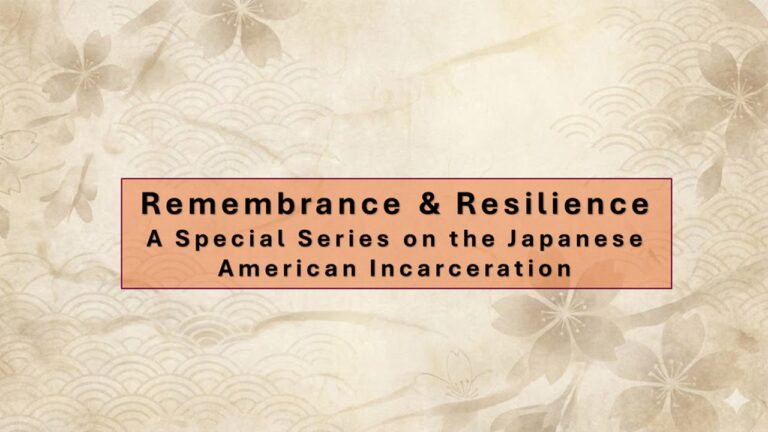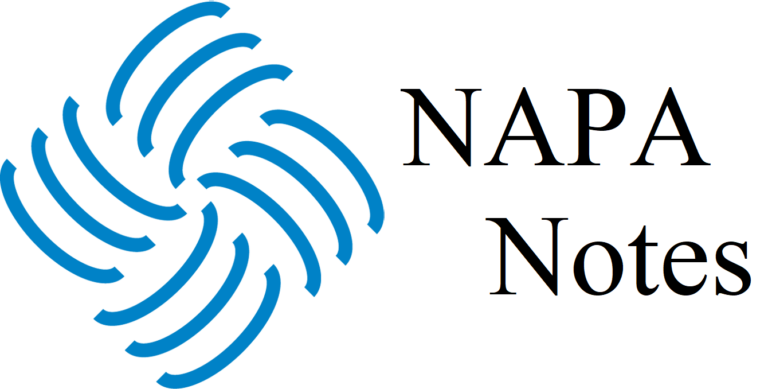National Association for the Practice of Anthropology
sNAPAshots: Feras Klenk

This work is licensed under a Creative Commons Attribution-NonCommercial-ShareAlike 4.0 International License.
Transcript
Interviewer 00:00
[sNAPAshots Logo] Intro Music. Welcome to sNAPAshots, conversations with professional practicing and applied anthropologists. [Onscreen Text] How did you get interested in anthropology?
Feras Klenk 00:22
So my name is name is Feras Alejandro Klenk, right now, I’m a senior UX researcher at Edward Jones. I mean, it’s sort of like standard narrative, I think, with everyone who got interested in anthropology, you know, growing up in a multicultural household, my father’s Lebanese, my mother is Mexican. So, you know, kind of growing up with those two cultures side by side, you know, like, what’s my identity? You know, waxing, waning, you know, over the decades. But also growing up in the United States and sort of, like consuming, you know, bits of Americana kind of mediated, you know, through those, I guess at the time, you know, I would see as, like, binary identities. And now that I’m, you know, 40 years old, you know, I can, you know, approach these bits in a way that makes sense to me. They’re more fluid, and I don’t really have to think about what other people think, like who I am, right? Because that’s sort of like the curse of the Diaspora kid like, I think whoever, the whoever is like, binational, like, knows what I’m talking about, right? And being being told, you know, well, you’re not really this, you’re not really that your language abilities are not that great, or you’re not authentic enough. So a lot more relaxed about these sorts of things. So I guess that would be so the initial, like, impulse, like, to take up, you know, anthropology, to kind of study that, I mean, study up basically studying myself. And I think that’s for a lot of people who end up pursuing a, like, PhD. It’s, it’s kind of like therapy, basically. Funny story when my, I think one of the jobs that I got with like FedEx, when I was interviewing with them, I just kind of mentioned offhand, like, yeah, you know anthropology and that sort of, like, got my foot in the door. They’re like, Oh, we had an anthropologist come on in, and we liked that person. They were cool. I’m like, what did they do? Like, we can’t tell you anything, but we just like this person, no. But seriously, right? In terms of, like, practice, I think it’s more like the way I see, in terms of, like, my own work, it’s more like, more like an orientation, right, where I bring like to the table, in terms of thinking about Edward Jones, such as like, bringing like the background to the fore, right? Because obviously I’m working with like, financial like advisors, but obviously the work of their branch office assistants and other client support staff, to some degree, goes like unnoticed, and bringing like that to the to the fore like, to the product owners and whatnot, in terms of like, access to tools, you know, things like, of that nature as an example, right? You know, thinking like holistically, right? Not just like in this tiny, little narrow, like box, as it may be, there’s still a tiny, narrow box, because we’re all, like, siloed in different product teams, but to the extent that is possible, try to think in terms of like in systems as I would use, you know, socio technical studies, right? Because obviously we bring in like, different judgments, right? We bring in like that sort of, like, curiosity. You know, people would be like, Wow, you find this stuff interesting? This is like, boring. This is boring stuff. And I’m like, that’s like, I find it interesting.
Interviewer 03:29
[Onscreen Text] What industry challenges do you solve with an anthropological perspective?
Feras Klenk 03:31
Obviously, it’s really gonna depend on, like, which industry you’re in, which company you’re in, in terms of, like, the challenges you’re gonna solve. Because obviously, if we were all at like red, or I pronounce like correctly red associates. It’s gonna be very different. That’s that’s more of like, your like Trad and the logical work. It’s pretty cool stuff, basically, right? Edward Jones, I’m in Enterprise UX. What does that mean? That means I’m more like, I work with internal like tools and systems to make them more like efficient. So we’re all thinking about how to make it more like efficient, like for the branch teams that I work with. So, like, I work, I support three product teams at the moment, different tools, you know, trying to solve different challenges. Sometimes they can get, like, incredibly, like my minute, but it’s under the umbrella of just like efficiency. I mean, being in financial services, I think we have a little bit more time, because we’re internal, right? You know, we’re not client facing. It’s not as fast. So I like that. I can be like, grateful. There’s a little bit more time allowed for me to think a little bit obviously, you know, I’m not, you know, writing like, I don’t know, articles to, like my product owners, I still have to answer like certain questions, but at least, like in my reports, I like to embroider with, like, some other insights, you know, as it relates to the larger, like contexts and and a lot of it has to do with, like the enterprise, like systems, right? Like I kind of alluded to earlier about it is this. Them, and a lot of these systems were, like, built at different points in time, and the way they communicate with each other, it’s kind of like haphazard. So I mean, we or I mean, there are some tools like from the 1980s like, think Wolf of Wall Street. That are still like present. I don’t work with them, but I’ve seen them. They’re pretty, like, retro, super cool. But the tools I’m working with, like right now, obviously much more like modern but the way they interact with interact with other tools. You know, it’s all, it’s all very complicated. Sometimes, when the real answer would be like, yeah, maybe we should, like, we should, we shouldn’t be designing systems that, like, don’t take, I don’t know, the the entire Edward Jones ecosystem into account. I don’t know, just just a thought. Yeah, it’s gonna be hard, it’s gonna be difficult. Like, it’s not gonna be easy. Like, you’ll, you’ll, you’ll have days we’re gonna be, like, super frustrated. But…and they should know this ahead of time, so they know how to prepare for that, sort of, like, mentally, like, it’s, it’s not all, like, every day going to be out in the field, collecting data there days, maybe even weeks, nothing really happened to you. Really, like, annoyed with yourself, and you’re like, damn, am I a failure? I mean, I think it’s important, like, they should know this. There’s going to be a lot of like, you know, negative affects floating around. You just have to deal with it. I know, trying to get trying to get out on contact with, like, your advisor and your advisor, like, put you on, read, I don’t know. Yeah, it’s a kind of a, like, maybe in some, some instances anyway, like a known unknown, like, you know, though, there’s going to be circumstances, they’re going to come about, but you don’t know what, if, and when they’re going to happen. And if you’re kind of, like, equipped to deal with them, like, from it, I would say an emotional like, perspective, like, they don’t really talk about that. [Onscreen Text] What advice would you give to future anthropologists seeking roles in professional, practicing, and applied fields?
Interviewer 05:48
[Onscreen Text] What is the one thing about the practice of anthropology that nobody told you as a student?
Feras Klenk 06:44
Don’t do a boot camp. It’s not worth, like, the time I, you know, I would say with training at the MA, especially PhD level, like you have all that it takes. Of course, it’s translating those skill sets in a way that, like, private industry recruiters will understand, having said that, you know, obviously they’re like, oh, but was it paid work? And it’s just like, I mean, it was, I mean, you were, you were paid by the university. So sometimes, I guess, I suppose it could be a matter of like, presentation like as well, but it’s just like, and like, obviously, learning some industry jargon, there’s a lot of overlap with some of these terms. Obviously, how they use it and the meanings will shift are slightly different, but like, yeah, like, just be confident. And I feel like there’s a profound lack of like self, the lack of lack of confidence among a lot of people, like shifting from like academia to the private industry, and a lot of it has to do with like being in academia, which I believe is like a confidence grinding machine in so many ways. Like, Oh, you didn’t publish in a top journal. Like, you know, get out of here, you know. Oh, you didn’t get, like, tenure track. Again, get out of here. And it’s already, I mean, you know this already. It’s interesting how like academia is the only like space where, like, the more experience you have, I don’t, as a visiting professor or, like, post doc, is actually counted against you, it’s expensive too. Like, if you can take maybe a short course, like, you know, just like, one month, you know, kind of like, pick up some of the jargon, some of the lingo, that’s okay, but not, like, a 10k or whatever, like, boot camp for like, three, six. What? One you don’t need that, like, you have all the skills already.
Credits 08:23
PRODUCED BY Niel Tashima Cathleen Crain Joshua Liggett DIRECTED BY Reshama Damle EDITED BY Whitney Margaritis MUSIC VIA PIXABAY: “Fat Chillin” by Lazy Chill Zone, “Cocktail” by Alex Productions ADDITIONAL FOOTAGE VIA PEXELS BY: Alena Darmel, Cityxcape, Fauxels, Ono Kosuki, RDNE Stock Project, Tima Miroshnichenko
Feras Klenk 08:23
[Outtakes] It’s like, I’m not, kind of like an American kid growing up in this household, like, why are we eating this? This is odd. Or, you know, explaining in front of, like, like, my white like, classmates when I was like, kid, like, Oh, this is a totally normal thing to eat. Some, like, Lebanese dish, I don’t know my dad made after a while, it kind of gets annoying. I mean, sometimes you’re like, I’m kind of special. Other times it’s like, like, Can we can we get past this?
Interviewer 08:57
Like, what you see, let us know! Find us at PracticingAnthropology.org. LinkedIn, Meta X, Bluesky, and YouTube. Many Thanks to NAPA’s Governing Council for supporting sNAPAshots Conversations with Practicing, Professional, and Applied Anthropologists NAPA is a section of the American Anthropological Association.
Volunteer Plug 09:31
[On screen text] Want to volunteer with NAPA? We’d love to hear from YOU! Contact: ntashima@ ltgassociates.com [In starbursts: Social Media, Organization, Promotions, Events]
AAP Plug 09:31
[On screen image, Front cover of the AAP journal for NAPA, and text] Stay connected with 40 years of the Annals of Anthropological Practice https://practicinganthropology.org/communicate/submit-to-the-annals/
Interviewer 09:31
[On screen image: NAPA Logo] sNAPAshots sNAPAshots.
Transcribed by https://otter.ai



![[NAPA Logo] sNAPAshots: Conversations with Professional, Practicing, and Applied Anthropologists. Rosalie Post, Design Anthropologist, Co-founder of NAMLA. PracticingAnthropology.org Bluesky, X, Meta, LinkedIn, and Youtube Logos](https://practicinganthropology.org/wp-content/uploads/Rosalie-Post-LinkedIn-Flyer-768x768.jpg)